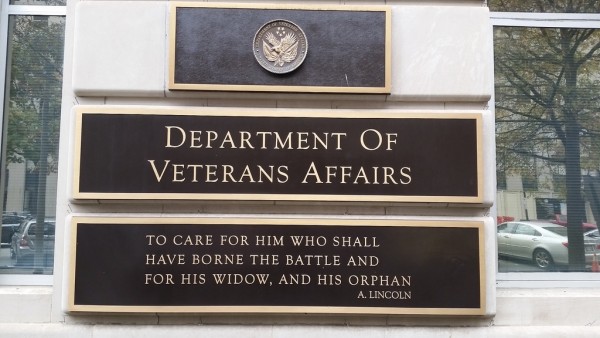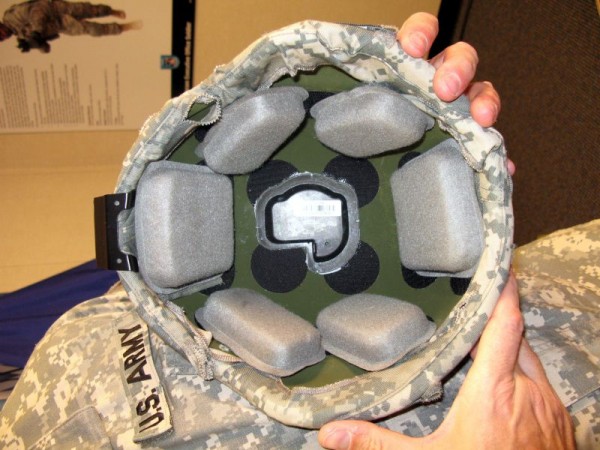Found below are a few military news items that caught my attention this past week. I am hopeful that the titles and short commentary will encourage SFTT readers to click on the embedded links to read more on subjects that may be of interest to them.
If you have subjects of topical interest, please do not hesitate to reach out. Contact SFTT.
Biometric Feedback to Alter Military Performance Effectiveness
Imagine a group of volunteers, their chests rigged with biophysical sensors, preparing for a mission in a military office building outfitted with cameras and microphones to capture everything they do. “We want to set up a living laboratory where we can actually pervasively sense people, continuously, for a long period of time. The goal is to do our best to quantify the person, the environment, and how the person is behaving in the environment,” Justin Brooks, a scientist at the Army Research Laboratory, or ARL, told me last year. Read more . . .
Base Closures a “Hot Potato” for Politicians
An effort by the Trump administration to get a new round of military base closures faces an uphill battle after the House rejected it this week. “This is one the few political third-rail items because lawmakers are essentially voting for a process that would allow bases and installations to potentially in their districts and states to be closed or downsized,” said Roman Schweizer, a defense analyst at Cowen. Read more . . .
Military Option Against North Korea Won’t Work
Judging from the United Nations Security Council’s emergency meeting on July 5, it seems that the United States is not going to get China and Russia on board for serious collective UN sanctions against North Korea. US Ambassador Nikki Haley spoke about the United States going alone if that didn’t happen, and left it unclear what that might mean. There were surely more discussions during the G20 meeting in Hamburg, Germany. We have arrived at a critical juncture. There is talk of military action, which is not a real option at all. Read more . . .
 Bipartisan Support to Reshape the Department of Veterans Affairs
Bipartisan Support to Reshape the Department of Veterans Affairs
Magnanimous hearings. Bipartisan votes. Substantial legislation on its way to becoming law. This is Congress? Something strange is happening in the staid hearing rooms of the House and Senate Veterans’ Affairs Committees here this summer, though few have taken notice. As the rest of Congress fights over the health care overhaul and looming budget deadlines, the committees responsible for writing legislation affecting veterans are quietly moving forward with an ambitious, long-sought and largely bipartisan agenda that has the potential to significantly reshape the way the nation cares for its 21 million veterans. It could also provide President Trump with a set of policy victories he badly wants. Read more . . .
Senators Discuss Framework for Veterans’ Choice Program
Now, the senators are turning to the larger discussion of how veterans receive health care outside of the VA, and how much choice they’ll have in the matter, a topic that’s previously caused a rift between parties as Democrats decried Republican attempts at VA privatization. “That discussion, the issue of where a veteran receives care and how that process is constructed, has been looming over this committee for years,” said Sen. Jon Tester, D-Mont., the ranking Democrat on the committee. “We need a dramatic revamp of the VA’s community care program.” Read more . . .
PTSD May Be Physical as Well as Mental
Post-traumatic stress disorder (PTSD) has always been associated with mental health, but new research suggests there’s a physical aspect to it too – that a certain area of the brain is larger in people suffering from PTSD. That means we could improve the way we detect and treat the debilitating condition by looking at physical as well as psychological signs, giving doctors something outside the mind that they can study. Read more . . .
Canadian Military Protests Against Anti-Malarial Drug
Canadian veterans are stepping up their opposition to the military’s continued use of the anti-malarial drug mefloquine, widely blamed for neurological disorders. Outside a downtown Calgary armed forces recruitment office, 14-year military veteran Dave Bona protested what he calls Ottawa’s failure to address the problems stemming from years of mefloquine doses in hot climate conflict zones such as those in Africa. Read more . . .
Drop me an email at info@sftt.org if you believe that there are other subjects that are newsworthy.
Feel you should do more to help our brave men and women who wear the uniform or our Veterans? Consider donating to Stand For The Troops
ShareJUL
2017


About the Author:
Vietnam vintage US Army officer who honors the brave men and women who serve our country.